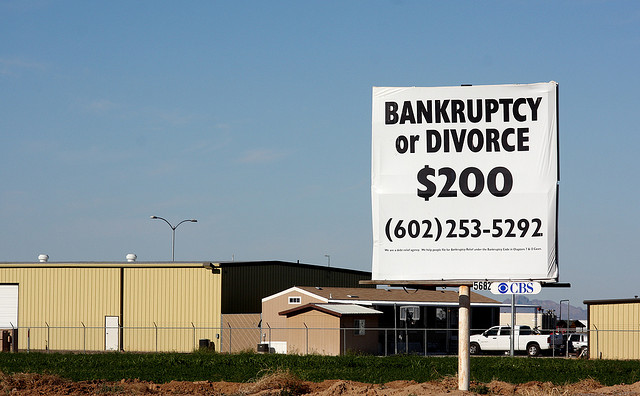“Don’t fight. It’s not worth it.”
I looked around, sure that I accidentally wandered into a therapist’s office.
“Martha, do you see these boxes here?” Don, my divorce lawyer, pointed to the pyramid of cardboard that reached the ceiling. “It’s a divorce case I’ve been working on for two years—two years! Do you know how much money they’ve wasted on this? $75,000! It’s the biggest mess I’ve ever seen. Don’t do that. Whatever you do, don’t fight. People deserve better.”
I couldn’t believe what was coming out of his mouth. Advice from well-meaning friends and co-workers said to beware divorce attorneys, especially the “Gladiators,” who encouraged clients to fight. The longer the couple spent arguing over assets and custody, the richer the lawyers would become.
Perhaps Don was just venting his frustration. Or maybe he slept through that Gladiator Divorce Attorney course in law school. Whatever the reason, I am grateful for his advice. Not fighting during the divorce, in spite the rollercoaster of emotions, is beneficial for multiple reasons. It saves money, expedites healing, and can empower us during a time when we feel helpless.
Not Fighting Saves Money
Divorcing couples who spend hours in their lawyer’s offices refusing to cooperate may think they are getting the upper hand, but at what cost? To be clear, sticking up for yourself is a separate issue: if the spouse steals money from a joint account, tries to abduct the children, or wracks up thousands of dollars of credit card debt under our name, then yes—we must absolutely stand our ground and assert our rights.
But what about the negotiables, like where the children spend Thanksgiving, or who keeps the furniture? Often in divorce, we want to “win,” and we’re prepared to fight for everything. This approach costs money. A lot of money. It requires that constant back and forth between our lawyer, the spouse’s lawyer, and the spouse. Depending on where you live, a divorce lawyer can cost anywhere between $100 to $500 an hour. And those hours add up.
Although statistics differ, the average divorce can cost $15,000 to $30,000. Who has that kind of money? Most people do not, and couples who continue to fight pay by putting it onto their credit card, raiding the emergency savings, or dipping into their retirement account. Is sacrificing our future worth “winning” a divorce?
“Work out your differences and try to do this yourself,” Don told me. That advice went a long way. Despite our heated emails and stressful, angry phone calls, my spouse and I were able to reach an agreement on most things. And our total lawyer fees? Under $2,000. I am sure there would have been an extra 0 in that number had I not taken Don’s advice.
It is not to say that during divorce, we should not use the resources available to us if we need them—there are many wonderful divorce lawyers and mediators, and collaborative divorce that can help us navigate the legal process when we are confused and overwhelmed. And depending on the nature of the split, we may want to utilize their expertise so that we can separate ourselves from any direct confrontation with our spouses. But to avoid heated confrontations and additional drama by diffusing conflict when we can, we can better manage our legal costs and start healing faster.
Not Fighting Expedites Healing
It took years to understand what Don meant when he said people deserved better.
The sooner both sides agree on splitting assets, debt and custody, then the sooner the separation agreement and co-parenting arrangements are finalized. When this happens, the sooner the divorce papers signed and filed, and the sooner the divorce is granted. That means you are able to move on with the next chapter in your life.
With nasty divorces, this is easier said than done, but think about it—one of the reasons we fight is because we are hurting. We are scared and confused and angry. And the only way we know how to deal with those emotions is by projecting that pain onto our business decisions during the divorce. We grasp for anything we can to substitute for the life that we had assumed would never change.
We fight because we think we will “win,” the divorce, and “get back at” our spouse. This tit-for-tat can go on for months and years, which only prolongs the stress and ensures a future of bitterness.
But what if we avoided or decreased the fighting? What if taking the high road, despite the drama, would help us accept the end of a toxic marriage so that we could learn how to forgive, heal, move on, and focus on the opportunities ahead?
Accomplishing the positive feats are nearly impossible if we’re still fighting over every perceived wrong. And don’t think the children aren’t noticing the fighting. They pick up on the sorrow, the anger, the negative words their parents say about each other. They will already be stressed enough with this life transition. Not fighting will ease the burden on them, which can help them adjust and heal faster, too.
Despite wanting to argue sometimes about every little thing, especially at the beginning of the split, decreasing the fighting gave me a clearer, more logical mind that allowed me to feel better sooner. But this doesn’t come easy. One of the hardest things at the beginning was to try to not make any business-related decisions at the beginning, because the raw emotion at the beginning would have affected their outcome. Looking back, I see some of the earliest, nastiest fights—deciding how to split the savings and who got the dogs on the weekend—would have been avoided if we had given ourselves the time—even a few weeks or months—to not worry about the things that weren’t urgent.
Not Fighting Empowers Us
Divorce is gut-wrenching because it demonstrates how little we control. When the intangible items we cling to—our identity, financial security and self-esteem are jeopardized, we feel helpless. We are desperate to replace them with tangible items that we think we have a shot at controlling, namely, the division of assets. And so we put demands on those and fight for those, thinking that having the last say will help us regain the confidence and control we lost, because we have no idea what else to do.
But it is the ability to compromise and resist demonizing the spouse that empowers, not the ability to make them “lose.” One of the most important things a friend reminded me early in the divorce, when I was voicing how upset and angry, dealt with “recognize, Martha, that this was a person you loved for a long time. Remember your ability to be kind to that memory before you bicker again.”
Those words were the tough love I needed to rise above the fear that had made itself visible when I was arguing about who should pay what credit card debt. Remembering the mutual respect that could still exist between two divorcing people gave me the motivation to work through some of the tough decisions that can test people’s patience at an already emotional time.
Our rising above the drama, taking care of ourselves, and staying focused on business decisions will move us forward. Avoiding drama is one of the most empowering acts you can do. It demonstrates that we are the one who controls our fate. What is more empowering than that?
The road of rising above is not always easy. There were many times I wanted to ignore my lawyer and have the last word on everything. It was a struggle, but in retrospect, that advice was invaluable. The money I saved on attorney fees was put towards a future that I determined, and I was able to move on faster, regain my confidence, and regain the independence that had gone missing. It is my hope that others can do the same.
Relephant:
Divorce Doesn’t Need to be a Four Letter Word.
It starts with Maitri:
When we feel bad, we tend to do things that make us feel worse:
Author: Martha Bodyfelt
Editor: Catherine Monkman
Photo: Kevin Dooley/Flickr



Read 46 comments and reply